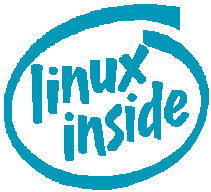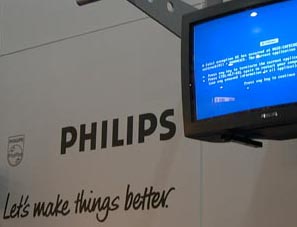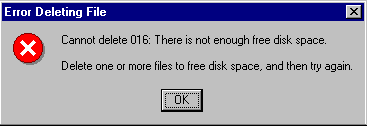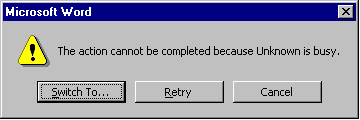

Linux is a powerful, non-proprietary, standards-based operating system that is currently the fastest growing computer operating system on the planet. Linux offers speed, performance, stability, and reliability that rivals (or surpasses) that of commercial operating systems costing hundreds or thousands of dollars. Linux contains all the features required of modern desktop PCs, corporate file servers, firewalls, routers, and Internet servers. Its install base is conservatively estimated at over 10,000,000, and is growing at a rate of approximately 3% per week. In fact, Linux market share surged by 212 percent in 1998, and it is the only non-proprietary operating system that is currently demonstrating positive growth. Since it is made available under the GNU Public License as an open source product, Linux may be downloaded free of charge via the Internet, or purchased for a small fee on CD-ROM.
Although Linux was originally designed to operate only on Intel-based PCs, portable and modular coding has allowed it to become increasingly hardware independent. Today, Linux operates on an impressive and growing list of hardware platforms. On the low-end, it powers IBM's Watchpad, G.Mate's Yopy and Sharp's Zaurus Personal Data Assistants. On the high-end, it is used in a growing number of supercomputing environments. Avalon, a supercomputer developed at the Los Alamos National Laboratory , operates under the Linux operating system and was rated among the 500 fastest computers in the world. NASA uses parallel Linux clusters as part of their Beowulf supercomputer. In 1998, Cranfield University (UK) replaced its Cray supercomputer with a Linux-based system of networked Pentium II PCs it calls the Borg. Stanford University uses Linux to power the World's Smallest Web Server.
Linux is also finding its way into embedded devices that are used in a growing number of modern electronic devices. The TiVO digital video recorder is based on Linux, and Linux is even finding its way into modern high definition television sets. The fast and powerful Google Internet Search Engine is Linux powered. Linux even runs on Apple Power Macintosh and iMac computers! With the downturn in the economy, Linux is proving itself valuable in non-proprietary network routers that offer performance with a cost/benefit ratio unmatched by proprietary routers, such as those by Cisco Systems. The number of Linux devices is growing at a very healthy rate!
Much of the success of Linux is due not only to its outstanding performance, but also by the fact that it is a non-commercial, non-proprietary, platform-independent, open source product. Much like the Internet, Linux brings with it a freedom and openness that has not been seen in the computer industry in many years. No longer are large, domineering companies like Microsoft dictating what users can and cannot do with their computers. No longer are computer users being treated as pawns in Microsoft's unethical (and illegal) practices of predatory capitalism. No longer are computer users the slaves of greed, aggregate wealth, or the whims of a single, domineering software company whose only concern is the "bottom line". With Linux, there is no "bottom line". Instead, success is measured by performance and design excellence.
A survey conducted of Information Technology executives attending last December's Giga Emerging Technology Scene conference concluded that 58 percent of computer users are ready to drop Windows for Linux. The survey also painted Microsoft as the software vendor least trusted to deliver on its promises, and Linux as the platform to which computer users would most likely move.
Today, Linux is receiving strong support from forward-thinking computer industry giants such as Netscape, AOL, Intel, IBM, HP, Dell, Sun, Oracle, Informix, Sybase, Compaq, Silicon Graphics Inc., and Novell, as well as many smaller companies who have traditionally aligned themselves with Microsoft in the past. These actions, and the trend it suggests, are an indication that a growing number of companies see a brighter future for Linux than they do for Microsoft Windows.
Amerada Hess Corporation, a $6.6 billion oil company, successfully replaced an IBM SP2 supercomputer with a 32-node cluster of PCs running Linux. Amerada Hess decided against using Windows NT because it would have required them to re-write an application containing three million lines of code, an effort that was judged to be impractical.
The United States Postal Service bases its optical character recognition system for reading mail nationwide on thousands of computers running Linux. Linux was also found to be powerful and reliable enough to power a supercomputer at the Los Alamos National Laboratory. Would you trust a nuclear lab that used Microsoft Windows to control its equipment? (Can you say "Stuxnet"?)
And then there's the issue of cost. Linux may be downloaded for free via the Internet or purchased for a small fee on CD-ROM. Proprietary operating systems such as Microsoft Windows can be extremely expensive, not just initially, but also over time if the cost of software upgrades, hardware upgrades, licensing fees, and lost time and productivity due to crashes and viruses are also taken into account. In fact, migrating to Windows 2000 was seen by The Gartner Group as a "money losing proposition". The Group's report concluded that the cost of moving to Windows 2000 could be as much as $3,100 per PC, making it difficult for companies to achieve any return on their investment for at least three years.
A few of the growing number of articles demonstrating the superiority of Linux over other operating systems include:





Another TechWeb report stated the following about Linux:
"It's in everyone's best interest for Linux to succeed [except Microsoft] because it can only represent growth of market opportunity for anyone who makes enterprise software for Intel, and for many companies, including Intel, it also represents a hedge against NT."
Several Linux Certification Programs are already in existence to provide training and evaluate the knowledge of Linux professionals.
The following links detail some of the many advantages of using Linux over Microsoft Windows in the corporate world:
The following links describe the use of Linux in high-end supercomputing environments:
The following links demonstrate the use of Linux in network routing applications, and in some cases, its superiority to proprietary Cisco hardware and IOS firmware:
Linux doesn't just run on desktop PCs and servers. It is also found in a growing number of consumer products, automobiles, and media players:
More recent news and information regarding Linux in general may be found through the following links:










Who says you can't make money with a free software? :-)

Interested in how the screen of a computer running Linux appears? The following links show screen shots of several different window managers operating under Linux:
Has Microsoft or the Microsoft-biased trade journals persuaded you into believing that Windows NT, Windows 2000, or Windows XP actually make better networking environment than veteran OSs such as Unix or Novell Netware? Guess again! This small sampling of articles show how Microsoft's claims just aren't true, and that some who believed the hype and switched to Windows are now sorry they ever did:
Are "Blue Screens of Death" (BSODs) a trademark of quality and reliability? Are system crashes and cryptic error messages that make no logical sense considered "user friendly"?

 |
 |
 |
Bugs, crashes, viruses, security holes, "Illegal Operations", and poor performance have become generally accepted attributes of Microsoft operating systems.
In 2000, the number of computer viruses was estimated at being 50,000, the majority of which affected only computers running Microsoft operating systems. By September 2001, these viruses caused 10.7 billion U.S. dollars in damage. The total reported number of Linux viruses for the same period: Just one.
Is the solution to this problem solved by increased use of virus protection software? No, it isn't. The answer is a well-designed computing environment that is immune to viruses and the damage they inflict on people and businesses.
The following links discuss some of these issues in further detail, and offer assistance to those who continue to use Microsoft products:







"Windows is an utter kludge, the ultimate tar baby, sucking you in, making things harder and harder, until you are hopelessly snagged and stuck, exhausted from fighting with it, resigned to despair. It is an inscrutable, god-awful mess, a disaster waiting to happen, a bonehead botch-job jammed with you-can't-get-there-from-here idiocy. They could train soldiers to kill by forcing them to struggle with this.It's bizarre that so many of us routinely put up with the crashes, the snarls, the unintuitive workarounds, the billions of hours wasted fumbling with broken systems, nursing along this crippled basket-case of an OS. Where is the outrage over so many lost hours of torment and unproductivity?"
PAUL SOMERSON, PC Computing
The United States Department of Justice has made clear its Conclusions of Law and Final Order regarding Microsoft's violation of the Sherman Antitrust Act. Additional lawsuits against Microsoft are expected to mount over time antitrust issues as the US Justice Department indicates on its web page.
Wendy Goldman Rohm's new book entitled: The Microsoft File: The Secret Case Against Bill Gates (ISBN: 0-8129-2716-8), provides an inside look at Microsoft Corporation and the unethical, underhanded, and possibly illegal tactics used by the company to thwart competition and stifle innovation at the expense of consumers. Further information, as well as reviews of this new book are available through amazon.com.
James Gleick published an article in the New York Times Magazine that discusses The Microsoft Monopoly. In this article, Gleick documents Microsoft's anti-competitive practices in detail, along with choice quotes from Gates, Ballmer, and other high technology executives both inside and outside the company.
A recent article entitled, GE, Microsoft Bring Bigotry To Life discusses the recent move by MSNBC to hire a bigoted talk show host for airing on a weekly basis. (MSNBC is co-owned by General Electric/NBC and Microsoft.)
Further evidence of Microsoft's sinister, underhanded, and predatory business tactics were made clear recently through several documents leaked to sources outside of Microsoft several years ago. These documents have become known as The Halloween Documents, and indicate exactly how seriously Microsoft takes the threat from Linux and other open-source projects, and reveal in detail the dirty tricks Microsoft (at the expense of consumers) is willing to use to stop them.
On the bright side, these documents also reveal just how much Microsoft engineers were shocked by the performance of Linux after having installed it on a 100 MHz Pentium-based PC.





No animals were harmed, nor any Micro$oft products used in the creation or distribution of this page.
This page was last modified on April 4, 2013. Thanks for stopping by!
 |
John Magliacane Amateur Radio Operator: KD2BD Open Source Software Developer Internet Advocate Since 1987 Linux Advocate Since 1994 |